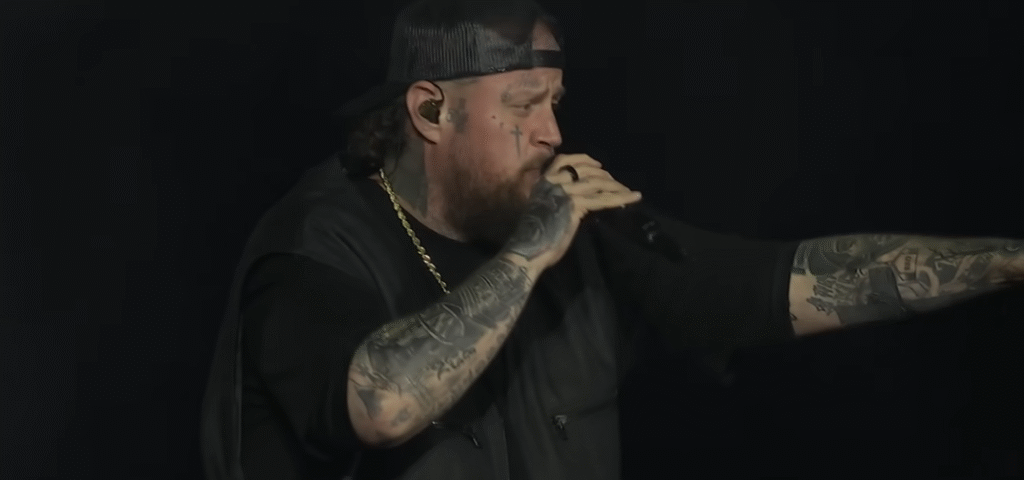Post Malone’s name is making headlines once more, but not because of a platinum record or a sold-out tour this time. Rather, it concerns a lawsuit that has remarkably resembled the conflicts that characterize the uncomfortable nexus of labor, art, and fame. Larry Deuel, a former limousine driver, has filed a $10 million lawsuit against the artist, who is well-known for his incredibly successful fusion of hip-hop, rock, and pop.
The conflict arose from Deuel’s appearance as a chauffeur in the 2020 “Tommy Lee” music video, which featured Tyla Yaweh. Deuel says he was asked to appear on camera during the shoot but was never paid for it, according to the lawsuit he filed in Utah’s Fourth District Court. He maintains that despite being promised that he would be “taken care of,” no contract or payment ever came to pass. Despite its informal tone, that pledge has become the cornerstone of a legal dispute centered on justice and artistic morality.
According to Deuel, his part in the video was anything but incidental. As a major visual component that complemented the video’s recurrent themes of luxury and celebrity, he can be seen rolling out a red carpet, opening car doors, and performing. According to his lawsuit, he made a significant contribution to the overall narrative of the music video, turning what could have been a mediocre production into something more vibrant and inspiring.
Post Malone – Bio and Career Overview
| Field | Information |
|---|---|
| Full Name | Austin Richard Post |
| Stage Name | Post Malone |
| Date of Birth | July 4, 1995 |
| Birthplace | Syracuse, New York, USA |
| Profession | Singer, Rapper, Songwriter, Producer |
| Notable Works | “Circles,” “Rockstar,” “Sunflower,” “Congratulations” |
| Awards | 10 Billboard Music Awards, 3 American Music Awards, 9 Grammy nominations |
| Current Lawsuit | $10M claim by limo driver Larry Deuel |
| Record Label | Republic Records |
| Reference | Complex |

According to the court filings, the “Tommy Lee” video would have been “visually underwhelming” without Deuel’s presence, bolstered only by “two unkempt musicians riding ATVs in a dirt field.” The statement, which emphasizes how financial gain and creative recognition frequently clash within the volatile entertainment industry, feels exaggerated but emotionally poignant.
Post Malone, on the other hand, has established his reputation on humility and is frequently characterized as being incredibly grounded in spite of his enormous fame. His admirers see him as a personable character who is particularly grateful for teamwork. However, this case—which involves allegations of unpaid artistic contribution—raises a challenging issue regarding how artists strike a balance between contractual clarity and creative chaos.
With more than 97 million views on YouTube, the aforementioned video has greatly increased the visibility of both artists. The core of Deuel’s grievance is that enormous visibility. He contends that without his permission or payment, his likeness has been used for profit. His lawyers are pursuing damages for misappropriation of likeness, fraudulent inducement, and breach of contract. The lawsuit emphasizes how the lines between professional responsibility and artistic participation are becoming increasingly hazy in a digital age where a single frame can reach millions.
A detail that verges on cinematic irony heightens the case’s emotional tone. Security guards reportedly laughed and refused to deliver court documents to Post Malone’s home when Deuel’s legal team tried to deliver them. This instance demonstrates how celebrity frequently serves as a barrier and a shield, shielding artists from criticism while removing them from responsibility.
Post Malone has previously been involved in lawsuits related to his artistic endeavors. In 2023, the artist previously reached a settlement regarding songwriting credits for “Circles.” However, this case strikes a different chord because it concerns a working-class driver who claims his trust was misplaced. It appeals to a larger social sentiment regarding justice and representation, especially in fields where verbal agreements are frequently just as common as formal contracts.
At a time when content creation has become more accessible, the situation seems particularly pertinent. Ordinary people don’t always know their legal rights when they appear in influencer campaigns, streaming content, and viral videos. Despite its dramatic scope, Deuel’s assertion captures a broader reality: consent, payment, and creative ownership are still intricately linked in contemporary entertainment.
Legally speaking, the case depends on demonstrating whether Post Malone or his group entered into a legally binding verbal agreement. Although it is notoriously difficult to verify such claims, courts have become more understanding of those who are taken advantage of through informal arrangements. Record labels and production companies may be prompted to adopt more structured agreements for even minor participants if Deuel’s testimony is upheld. This would make future collaborations more transparent and noticeably more equitable.
The optics are not ideal for Malone, who has made a career out of honesty and self-deprecating charm. His public image as a generous creative who once left a $20,000 tip at a restaurant stands in stark contrast to the lawsuit. However, it’s crucial to keep in mind that artistic endeavors, particularly those with several parties involved, frequently involve miscommunications rather than malicious intent.
Alongside Malone, Tyla Yaweh is dealing with the fallout. His own rise as a performer has been especially avant-garde, characterized by upbeat partnerships that conflate hip-hop and rock. For him, the lawsuit is a warning that even creatively spontaneous moments need to be handled with contractual accuracy, as well as a professional diversion.
Both fans and industry leaders have responded strongly to this case. While some consider Deuel’s complaint to be opportunistic, others see it as an essential check on the responsibility of celebrities. The disparity illustrates a continuous change in the way society views creative work. Every member of a production, be it a dancer, a driver, or a technician, adds something to the overall artistic experience, and even a small acknowledgement goes a long way.

